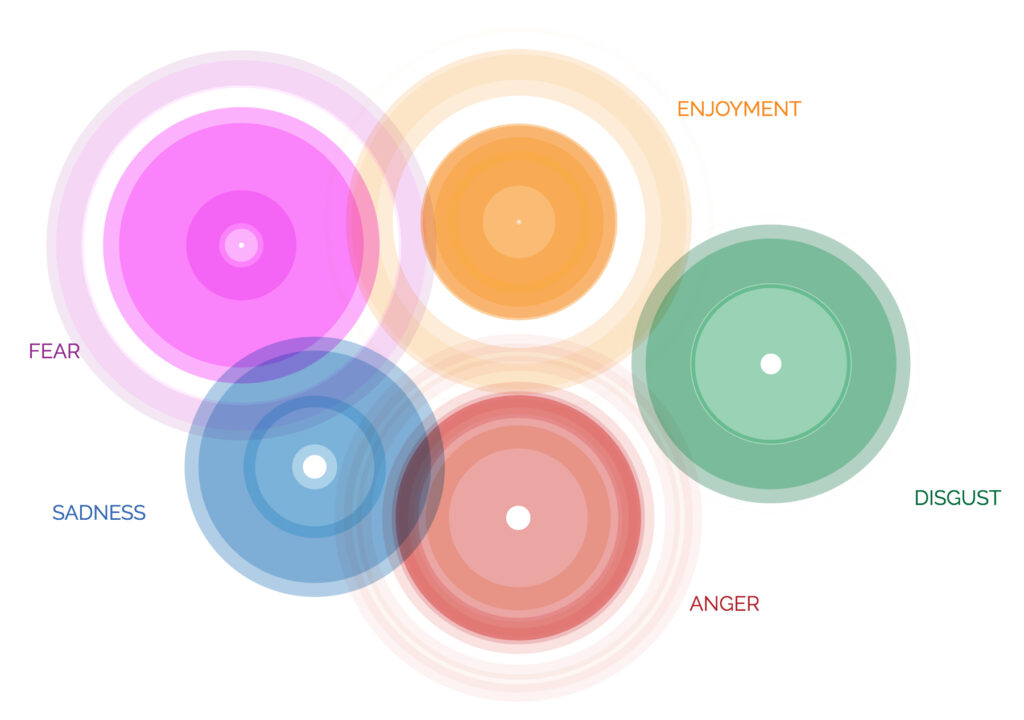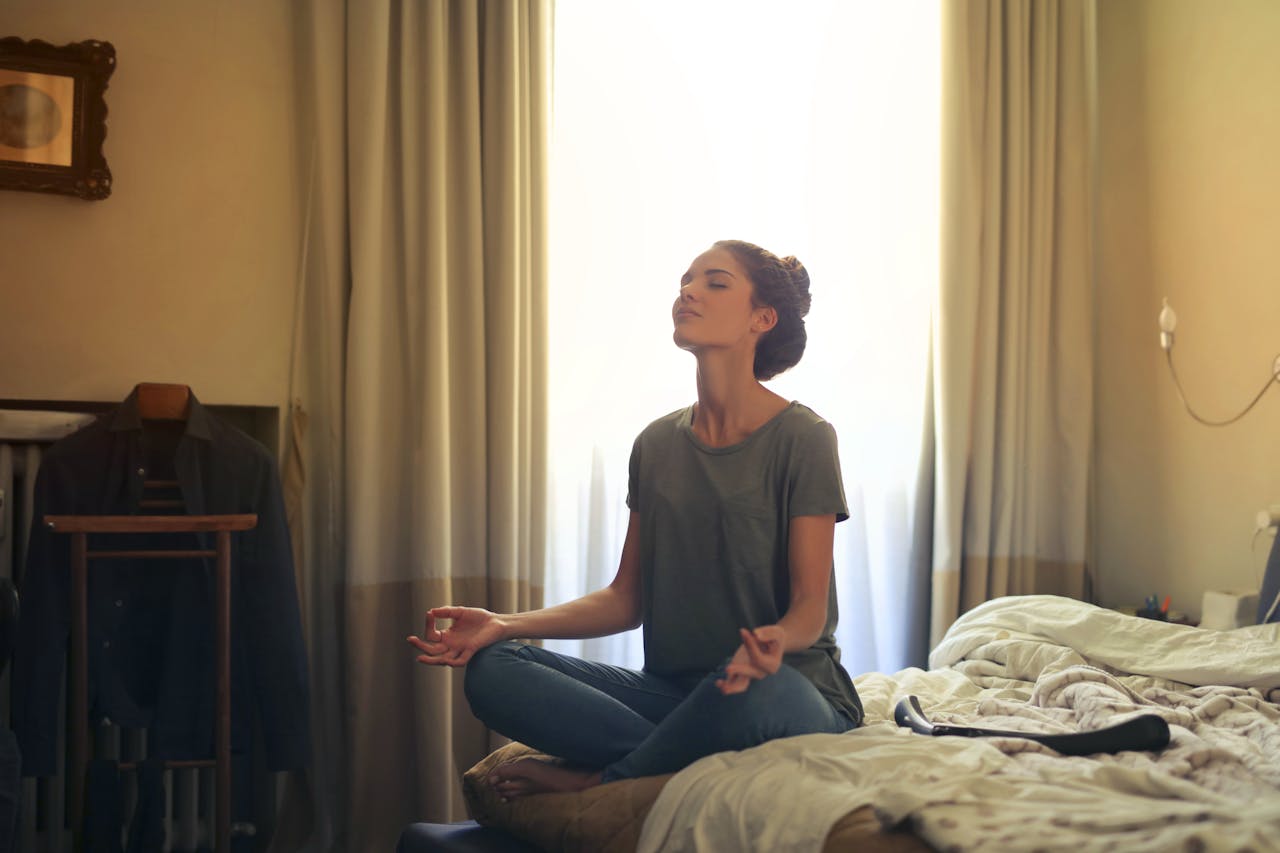Can you recall a moment when you recoiled in fear from a thick black rope, misperceiving it as a menacing spider? How did your body react? Emotions are the internal experiences in response to events and situations. They can arise from internal bodily states and have link with bodily reactions. They help us to make decisions, avoid danger and get in tuned with our inner states.
Emotions play a vital role in how we think, and make decisions. Furthermore, they also have a huge influence on our fate. Research shows that emotional intelligence has a positive relationship with overall life quality, particularly on occupation, academic success, sense of wellbeing and life satisfaction.
Emotional intelligence has a direct link with emotional wellbeing. However, they are different concepts. The former is the skill to emphasize with others, successfully communicating skills, and to be able to healthily deal with conflicts. On the other hand, emotional wellbeing is the skill to healthily regulate emotions, maintain a positive mood despite the setbacks and having a higher self-esteem. Having good emotional health is a major component of a higher life quality.
However, before diving into the topic deeply, it is important to clarify certain terminology.
Mood: Temporary states of mind and feeling. It can consist of several emotions and feelings.
Emotions: Things that are experienced in response to events or situations. They can also arise from internal states and have link with bodily reactions.
Feelings: Feelings are the interpretations of inner states and emotions. They are the construction of emotion and thoughts recalled from past events.
Universal Emotions
Paul Eckman is one of the leading researchers who studied the science of emotions thoroughly. His research (1970) showed that there are 6 universal emotions that are perceived the same way regardless of culture and language.
Happiness: This is the only positive emotion in the universal scale, associated with contentment, joy and gratification. This emotion is related to overall wellbeing, that feeling pleasure is derived from meaningful experiences.
Sadness: This is a low mood state derived from unpleasant emotions. It is a normal response to emotional wounds that occur from upsetting, painful or disappointing experiences.
Fear: It is a strong negative emotion, a bodily reaction to a threatening or a dangerous situation. It can also arise from anticipation of danger, an inference from mind by interpreting possible cues. Fear triggers strong emotional reactions to the body.
Disgust: This is the feeling of aversion toward something offensive. We can feel disgust to something that we perceive as unpleasant with our senses (sight, smell, touch, sound and taste). We can also feel disgust toward someone’s unpleasant behavior which is called moral disgust.
Anger: This is a reaction to intense unpleasant occurrence which might be originated from a past event, from other’s behaviors or a situation that we find unfair.
Surprise: It is a reaction, feeling of shock to something unexpected. The feeling is communicated with a strong feeling on the face. The emotion could be positive, negative or neutral.
Online Tools For Identifying Emotions
Paul Eckman and his colleagues have developed the Atlas of Emotions to visualize and explain how they are related to each other and how they can be used to cultivate emotional balance. Click here to view the Emotional Atlas.

Plutchik’s wheel of emotions is another model for mapping the spectrum of emotions. In this model there are eight primary emotions that are grouped as a continuum of the opposites. Click here to view the wheel of emotions.
Here is an informative article about how to use Emotion maps.
Here is a video on quick lesson of emotions.
What is Emotional Health and How Do I Strengthen It?
Emotional health is the overall success of being tuned into emotions. In other words, it has to do with emotional regulation, awareness and coping skills. People who are emotionally healthy are not happy the whole time, but they are good at dealing with the spectrum of emotions. So it is OK to feel negative emotions occasionally, like sadness, anger and stress, however people with a higher emotional wellbeing know how to manage their negative emotions and overcome them. So they don’t let negatively to take over their overall mental state. They have more control over their thoughts, behaviors and feelings.
Emotional health is different from mental health. While emotional health is the ability to deal with difficult emotions.
- Mental health is a general definition that influences the state of mind and covers mental, social and emotional wellbeing.
- While emotional health is the ability to cope with healthy emotions
People who have issues with emotional health are controlling their thoughts, feelings and behaviors more. They may perform lower at daily tasks, sleep too much or little, neglect personal care, experience eating disorders and may isolate themselves from friends, family and co-workers. Therefore, it is important to strengthen emotional health for a higher quality of life.
Here are some methods to strengthen emotional wellbeing.
1. Learn To Regulate Your Emotions
Emotional regulation is the skill of dealing with your emotions in a way that it wouldn’t lead to conflicts or damaging relationships. For instance, a person with a well-established emotional regulation skills would manage anger and sadness with ease. There are many techniques to learn to regulate emotions, from mindfulness, to breathing exercises. The most important is to learn to identify your emotions, pay attention to your reactions, and understand what situations trigger you the most.
Being reckless or impulsive would not bring any benefit to you, and it would only damage your relationships. If there are situations that you feel that you cannot control your emotions, the ideal is to give a break to it and wait until the memories and situations are cooled down.
2. Take Care Of Your Physical and Mental Health
Your health is most before anything, particularly work. Make sure that you eat balanced, drink enough water and have healthy sleep habits. If you make yourself overly tired and not careful about your general wellbeing, you would be more prone to stress. As the stress becomes chronic, it would also influence your emotional wellbeing because you would have a more tendency to experience negative emotions intensely.
3. Manage Stress
There could be multiple reasons for you to experience stress. It could be because of long exposure to stressful situations like demanding work or home environment. Another reason for stress could be because of your reactions to tragic events in the past, like the loss of a loved one, divorce, or a drastic change in financial situation.
There could be many signs of stress bodily reactions like extreme heart beating to perceived stressful situations, sleep issues, feeling confused, angry, loosing your self-confidence, sleep issues. Therefore, it is important to pay attention to your body, monitor the stressors in your life and avoid if possible. If it is not something you cannot change, make sure that you give yourself time to break from the stressors.
4. Maintain a Balanced Schedule
Create balance in your life with your schedule. If your to-do list is full of demanding tasks, it might get out of control after some time. Life is not a long-term race which you feel good when you achieve something hard. So if something is too demanding and requires excessive effort, revise your reasons why you are doing this. If it was something meant for you, maybe you wouldn’t struggle this much. Are you still working there, or doing some education because you like it or because of other reasons like social status, money or some external commitments? Life is full of possibilities, there are always other alternatives.
If you feel like you are off the balance, spend sometime with yourself every day, bring yourself mentally in the ground. The other things could wait. That is why methods like meditation and journaling are important, to become more aware of yourself.
Tanja J. Peterson’s approach to create balance in life is the combination of work, quality time with others, self-care, enjoyment and meaning. Head here to learn more about it.
5. Find Purpose and Meaning
We all have goals, big or small, and responsible for our environments. Is this sufficient to boost your energy and keep you going even though you face difficulties in life? Definitely not. A personal sense of purpose will bring fulfilment to your life.
Having a purpose is also related to how we experience happiness. It has been shown to make life more liveable and every day, as you grow toward a direction, you will have the motivation to progress in life. However, it is not always easy and straightforward to achieve your goals. So it is different from having a goal like buying a house. The process matters more than the outcome.
According to a scientific study in a large sample of adults, having a clear purpose in adult life was a strong predictor of recovering from negative life events and trauma. In another study, it was shown that having a clear purpose in life was related to longevity in older adults.
There could be possible barriers to having a clear purpose:
- Not clear about what you want to achieve in life.
- Limiting beliefs like being out of comfort zone.
- The desire to be secure and consistent. As humans, we have a tendency to stay in our comfort zones and choose a secure path. However, pursuing your purpose might bring a lot of uncertainty and risks.
- Commitments to family, friends and colleagues.
6. Stay Hopeful
Strengthening emotional wellbeing is a skill, and it requires practice and has its own learning process, just like any other skill. Furthermore, everyone has their own learning phase and the environment also plays a prominent role. Some people are challenging, some situations are challenging, so it is ok if you didn’t manage your emotions as good as you expected. Tomorrow is a new opportunity. You will learn from yesterday and try it over again. Just stay hopeful and don’t generalize like “I am not good, I am a loser, I cannot do it.” You just need more practice and trust me it will be ok. Don’t lose your hope.
Conclusion
Emotional wellbeing plays an important role in the quality of life and overall health. Emotional intelligence is different from emotional wellbeing that is more related to communication and empathy. On the other hand, emotional wellbeing is how well you internally manage the spectrum of emotions, including positive and negative ones. Some advice to overcome emotional wellbeing is to learn to regulate your emotions, maintain a balanced schedule, take care of your health, find a purpose and meaning, and stay hopeful.
